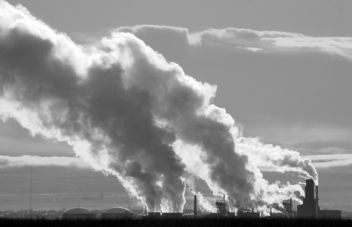
Ireland’s rising energy demand linked with economic growth
Ireland’s rising energy demand aligns with its economic growth, according to new figures from the Sustainable Energy Authority of Ireland’s (SEAI). According to the SEAI’s Energy in Ireland report, in 2018, Ireland’s final energy demand grew by 4.5% with increases in all sectors, while the economy grew by 1.7%.
The SEAI found that energy use for transport and heat both increased, which led to greater emissions in those sectors. With a 2.6% increase, transport continued to dominate as the largest energy-consuming sector making up 42% of final consumption. Both industry (4.4%) and households (8.3%) increased their energy use for heat in 2018.
However, total energy-related CO2 emissions fell by 1.2% and are now 19% below 2005 levels. This is mainly due to greater use of wind energy combined with a 44% reduction in coal use due to a technical fault at Ireland’s only coal fired electricity generation plant, Moneypoint.
The carbon intensity of every unit of electricity fell to a new low (375 gCO2/kWh) in 2018, thanks to a greater transition to renewable energy sources. Since 2000, carbon intensity has dropped by more than half.
William Walsh, CEO, SEAI, said Ireland is making progress in its sustainable energy transition, particularly in relation to electricity. However, he said: “While emissions from electricity decreased, emissions from how we travel and heat our homes and businesses increased. And overall, the rate of emission reductions will not keep us on track to meet our long-term decarbonisation goals.”
By 2020, 16% of Ireland’s gross final energy consumption should be from renewable sources. In 2018, that figure stood at 11%.
Walsh said every part of society must make an effort for use to reach our targets. “We as citizens can play our part by reducing energy use and emissions from our homes and transport. There are a wide range of government supports available from SEAI, which have already supported 420,000 home energy upgrades and the purchase of 8,900 electric vehicles. However, we need to continue to work together to encourage more uptake.”
The transport sector is a significant challenge, he said: “Energy use for air travel has reached an all-time high and is now second only to private cars as a share of transport energy. This is a perfect example of the tug of war between a desire to reduce greenhouse gas emissions on the one hand and the increased energy demands of an improving economy on the other.”
For the full SEAI Energy in Ireland 2018 report visit, www.seai.ie.
TechCentral Reporters








Subscribers 0
Fans 0
Followers 0
Followers